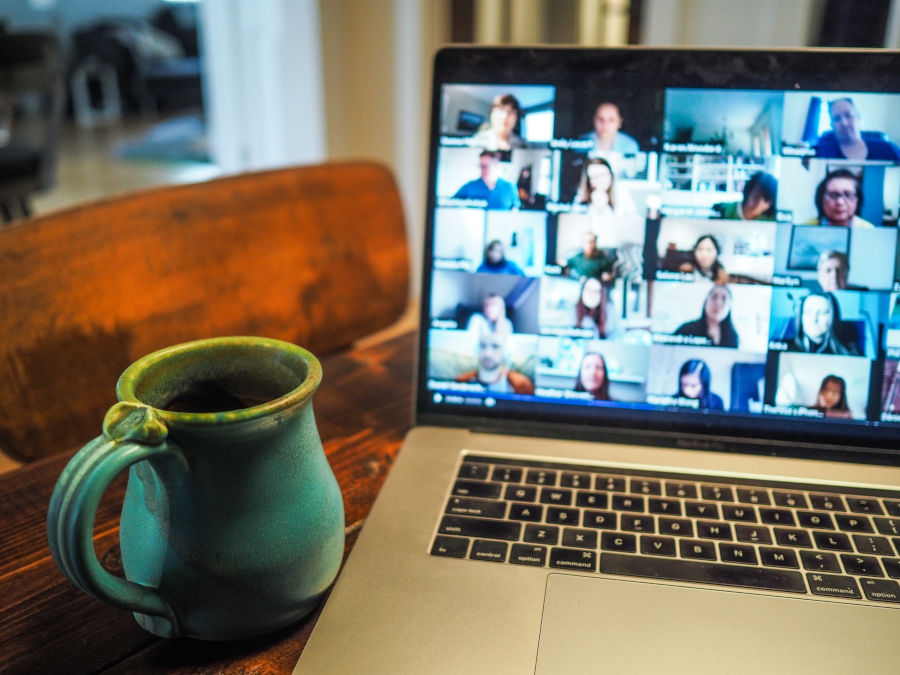Digital detox or digital cleanse is a conscious, extended time spent not facing a screen. Many suggestions for dealing with our communal tech addiction have already been made. These include using an app or iPhone’s Screen Time feature to limit use to certain times, actually scheduling Internet use into small blocks throughout the day to avoid the friction-free scrolling experience that tech companies have created, setting your screen to a greyscale effect to make using your smartphone not as dopamine-spiking, or going on a completely device-free retreat.
Perhaps your work doesn’t lend itself to committing to a full-on break from your gadgets. In that case, you can try incorporating the principles of digital detox into your lifestyle in a sustainable way that doesn’t decrease your necessary productivity output.
Signs you may need a digital detox
Social networking sites can be a point of positive social connection when used in a healthy way, even improving emotional wellbeing. So, we naturally seek out online communities for emotional reinforcement. However, as our mobile devices are made to draw us in and keep us there, we can easily slide into compulsive behaviours.
Heavy smartphone use has been linked to poor sleep hygiene, anxious and depressive symptoms, and increased stress levels. Technology addiction is increasingly being treated as a defined behavioural addiction, with hundreds of boot camps in China dedicated to dealing with compulsive computer usage in teenagers and rehab groups popping up in Seattle for gamers coping with dopamine withdrawal.
If the following signs feel true, you may be addicted to smartphones’ manufactured overstimulation and/or using it as a coping mechanism for burnout.
- You feel compelled to check your phone all the time with the fear of missing out
- You scroll social networking sites (SNSs) in your free time without the ability to control your usage
- You have trouble concentrating on a task without looking at your phone
- You feel depressed, angry, or empty after extended social media use
- You feel anxious and irritable if your phone is not accessible
How Covid-19 has exacerbated technology overuse
A study conducted in 2020 by Statista found that Hongkongers spend 7 hours a day consuming digital media. And for many people during the Covid-19 pandemic, this screen time has increased exponentially with work moving online.
With laptops ever-present, work/life balance was thrown off. The new reality of many people working from home is a lunch break spent watching YouTube and the majority of social interaction occurring through online mediums.

The natural breaks that came with commuting to and working in a dedicated workspace were largely gone. Electronic devices are intertwining social life, personal life, and work life in an unprecedented way and creating sometimes destructive patterns of overuse.
And even as we look to phasing out of work-from-home, our new normals will linger with us for a while. Paying attention to these signposts will help us to examine our time management, presence or lack of self-care habits, and whether we may be overworking or overexerting ourselves.
Tips for an effective digital detox
Identify your reason
Maybe we’re getting a bit philosophical here, but we can acknowledge that people have different reasons for excessive device usage. The question in this era of screens is less whether or not the problem exists and more why. Perhaps you don’t struggle with a psychological compulsion to pick up your phone dozens of times a day. The reason may be physically or emotionally motivated.
Aside from realizing that social media was simultaneously causing a crippling sense of FOMO and becoming an emotional crutch for me, I wanted to change my habits surrounding technology because my eyesight was deteoriating quickly. Mental roadblocks I am used to working on, but my already poor eyesight would be costly to fix later. Some people have found that reading overwhelming amounts of negative news was causing long-term damage to their nervous systems. Whatever your reason may be, identifying it is the first step to changing your established technological practices.

Incorporate small habits into your routine
A digital detox can look different for everybody. Maybe your current situation doesn’t allow you to disconnect as you would like to because your job is completely online, you’re required to be available all the time, or you can’t afford to take an extended computer hiatus. Be gentle with yourself.
Over time, small habits breathe life into patterns, and patterns consistently practised form our lives. Introducing these habits won’t adversely impact your daily productivity. At the same time, they can work to increase mindfulness so you can evaluate your thoughts and behaviours more consciously, and incrementally reduce your psychological dependence on technology.
- Avoid going on your cellphone first thing after working up.
- If you need to be online all day, do a mini detox at the end of the day. Try not looking at any screens for an hour before bed.
- Delete apps you don’t need and turn off notifications for non-essential apps. This way, your phone doesn’t mirror real-life interactions as much and its use will be more compartmentalized.
- Identify a particular app or site that is taking more of your time than others and restrict use of that problematic media.
Know that it will be hard at first
SNSs are made to be addictive. If tech companies removed the pleasurable “slot machine effect” from their apps, they would have to radically change their business models. (The slot machine effect, taken from gambling, is the formulation of apps to be infinitely scrollable, lacking stop signals that naturally come with any other activity, e.g. a book always ends.)
Indeed, it’ll take time for your brain to build new neural pathways and until then, know that it’s normal to feel bored or restless. Your brain has gotten used to being occupied in the silent moments in between.
It can be helpful to think that, in these moments that feel unproductive, you’re not actually doing nothing. You are subconsciously processing the past, reconciling and filing your memories in your brain, and synthesizing your future through imagination.
During genuine rest, we are still becoming. Becoming our best selves and, if you want, even our most successful selves. Breaking free from our technology addiction can help us to utilize digital tools even more consciously and effectively.




